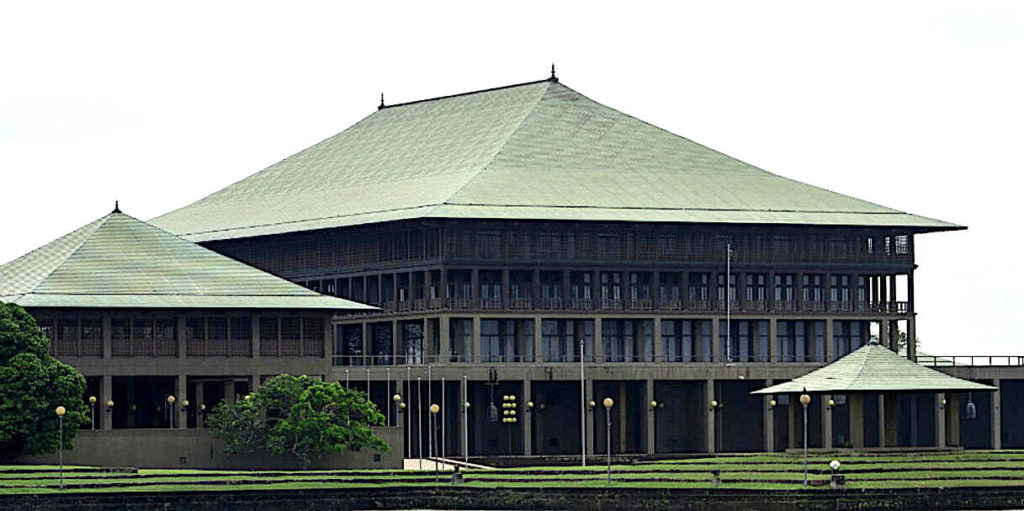Photo courtesy of France 24
Sri Lanka stands at a critical juncture in its political and economic history. As the country prepares for the parliamentary elections on November 14 with President Anura Kumara Dissanayake’s party, the National People’s Power (NPP), projected to make significant gains and expected to win, the direction of the nation’s governance hangs in the balance. If the NPP’s victory does come to fruition, it could mark the beginning of significant reforms aimed at rebuilding trust in political institutions, addressing corruption and reinvigorating the economy through policies grounded in equity and accountability. The outcome of these elections could either pave the way for a prosperous, democratic future or repeat the mistakes of the past that have left the nation in economic ruin.
This election is particularly significant given Sri Lanka’s recent struggles with economic crises and political mismanagement. The experience under President Gotabaya Rajapaksa’s government is a stark reminder of the dangers of unchecked authority and highlights why the pillars of democracy – executive, legislature and judiciary – must operate in harmony to ensure accountability, progress and stability. The term absolute power corrupts absolutely could not ring truer than in the case of President Rajapaksa’s administration. With a two thirds majority in parliament and near-absolute executive power, the government of the Rajapaksas made numerous disastrous decisions. Under their governance, Sri Lanka was not only unable to withstand the economic shocks of the COVID-19 pandemic but also mismanaged foreign reserves, leading to an eventual default on sovereign debt in 2022.
This period of political mismanagement and economic instability drove Sri Lanka into one of the most severe crises in its history. The missteps of the past have demonstrated that governance that lacks transparency, disregards institutional checks and undermines accountability invariably places citizens and the economy at great risk. Decisions such as imposing sweeping tax cuts and agricultural reforms without thorough planning backfired, harming both the economy and social welfare. This chapter of history serves as a powerful reminder: no government, regardless of leaders’ intentions, should wield unrestrained power. For a nation to thrive, its democratic pillars must operate in balance, ensuring stability and accountability. A democratic system with robust checks and a strong opposition is the safeguard against poor governance.
With President Dissanayake taking on the executive presidency and NPP poised to make strides in parliament, Sri Lanka has a fresh opportunity to reset its governance framework. Yet true progress lies not in one party dominance but in a balanced power distribution. A simple majority in parliament would give the NPP and President Dissanayake the mandate to form a stable government and implement its policies. This is essential for the continuity of governance and avoiding the pitfalls of a hung parliament where decisions are delayed and political bargaining weakens leadership. At the same time, a strong opposition with adequate seats to effectively challenge and question government actions is vital. A parliament where the opposition is sidelined or weak creates conditions for unchecked executive power – conditions that lead to the very disasters seen under the Rajapaksas.
In a healthy democracy, each branch must have the authority to scrutinize the others, ensuring that no single entity gains excessive control. These checks and balances are especially critical as the country recovers. The executive needs power to implement policies, but not to dominate. The concentration of both executive and legislative power with a two thirds majority in parliament in the hands of one party as seen during the Rajapaksa administration leaves no room for critical reflection or dissent, allowing harmful legislation to pass without adequate scrutiny.
The concentration of both executive power and legislative dominance within a single ruling entity is a grave danger for any democratic nation. When one party holds a two thirds majority in parliament, it can push through constitutional amendments, restructure government institutions and create laws without significant opposition or oversight. This unchecked power undermines the democratic principles of transparency and accountability, as policies may be shaped to benefit the ruling party’s interests rather than the nation’s welfare.
Historical episodes as well as the recent experience under the Rajapaksa administration illustrate the lasting damage that unchecked executive and legislative power can inflict. When leaders and parties prioritise absolute control over collaborative governance, the country’s democracy and social fabric are put at risk. Such imbalances erode public trust, hinder economic resilience and can lead to long term instability, underscoring the necessity of balanced power and robust institutional oversight for Sri Lanka’s democratic future.
This critical election offers the chance to rebuild institutions and restore public confidence in democratic governance. The last few years have demonstrated the high costs of centralised power where minority voices are silenced and policies lack transparency. The future depends on achieving this balance. A government that respects legislative oversight is better equipped to make sound, long term decisions. This upcoming election presents citizens with a choice to maintain this equilibrium. A government with a simple majority and a strong opposition is the best safeguard for democracy, progress and stability. As the country stands on the brink of a new political era, it is essential that voters recognise the critical importance of balance.
A democracy without checks and balances is no democracy at all; it is merely a dictatorship in disguise. The recent past has shown what can happen when power becomes too centralised and lessons learned from these experiences can inform a more resilient future. Sri Lanka has the chance to learn from its past and build a future where no single entity holds absolute power, where debate and dissent are encouraged and where the interests of the people, rather than the powerful, come first. Now more than ever it is vital to vote for balance, accountability and progress.
